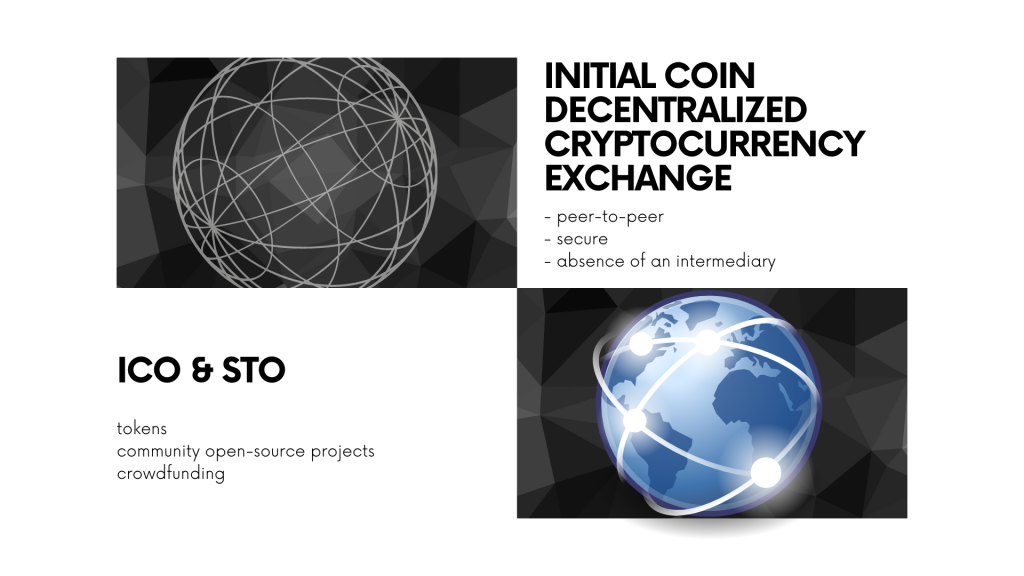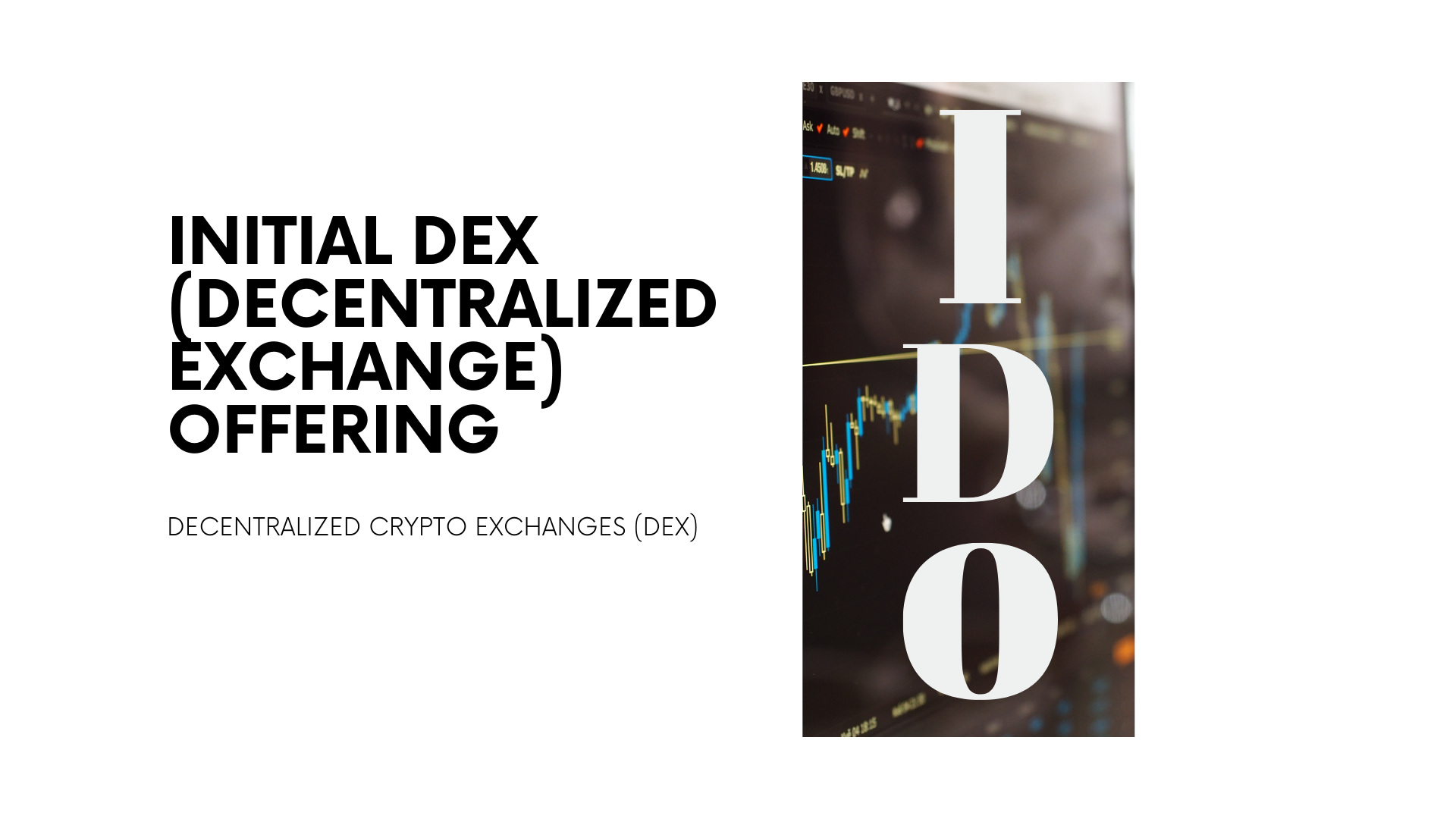Exchanging Cryptocurrencies create a platform that facilitates the trading of cryptocurrencies. Likewise, stock exchanges facilitate the trade of stocks. These days, almost everyone is familiar with stock exchanges and their case laws. However, unlike the stock, a crypto exchange can be a new or underdone term for many of us.
When cryptocurrencies started giving splendid returns, they came into the limelight. Thereupon, many investors carry it off well. By now, the cryptocurrency exchange has become mainstream for a host of investors and traders. And behind this, only two types of crypto exchanges are involved: Centralized and decentralized crypto exchanges.
In this section, we will mainly focus on decentralized crypto exchanges. So, let’s uncover the uncertain terms of decentralized crypto exchanges (DEX).
What is Decentralized Cryptocurrency Exchange (DEX)?
It is a type of crypto exchange that enables online peer-to-peer decentralized cryptocurrency transactions that are secure and in the absence of an intermediary or a third party.
With decentralized crypto transactions, we cast down the need for a third party that oversees the security and transfer of assets—banks, online payment apps, government institutions—to name a few third parties. And, here, the blockchain comes into play. Through this means, we don’t have to include any third person and pay operational costs. Thus it’s secure and cost-effective.
Uniswap (V2), 0x Protocol, Token Lon, and Venus are some examples of decentralized cryptocurrency exchanges.
But, how is it different from other coin offering methods, like ICO and STO? Before we form our understanding of similarities and differences, we should know what ICO and STO are.

What is the ICO (Initial Coin Offering)?
ICO is a swap of newly created tokens that enable blockchain start-ups to execute their experimental community projects. ICOs, sometimes also known by other names such as initial coin offerings, are a borderless and mostly unregulated form of sourcing for a stated amount of one or a variety of cryptocurrencies to fund mostly open-source projects that enhance the ecosystem of the decentralized network.
ICOs have emerged as a way to raise funds for securities or securitized assets globally with cryptocurrencies instead of jurisdiction-based fiat currencies. ICOs have been modified into an alternative form of crowdfunding, raising cryptocurrency instead of fiat currencies for legal entities beyond blockchain-based projects. Let’s go through some risks associated with ICO:
1) Legal Risk
The traditional state of ICOs is mostly undefined or unclear. Token rights may or may not resemble security. If token rights do not fall under the definition of security and there are no obvious interpretations, it becomes ambiguous how to proceed with existing law and regulation. So far, the way to execute the token sale campaign and the procedures are determined exclusively by the developers. No regulations lead to a lack of standards, which may, in turn, make the surveillance even harder for regulators. Furthermore, it is a chicken-and-egg problem that if no one sets standards, it is ambiguous who should be the regulator or regulators.
2) Lack of transparency
The success of ICOs or cryptocurrency may have insufficient to do with the services they can provide and how the business model will operate in the real world eventually. After all, ICOs are new experiments. Not all projects will disclose in detail what plan they have with the money raised, how the platform works, what kind of service it provides, what features it retains, and what problems it can solve. There are some cases where only a white paper is published to support the ICO with no elaboration, not even the program code.
3) Risk of capital
Without a proper standard policy to circumvent misuse of funds and other misconduct, investors’ interests are at risk. For many projects, they spun off a large amount of money before they figured out who and how to manage the fund. The deficiency of external regulations under the dome of the cryptocurrency market and disclosure requirements raises the alarm on the need for internal management.
4) Fraud risks
There is a potential for project scams and moral hazards. Such projects generally ensure a new existence of cryptocurrency, but the intention to deliver falls short. There is little to prevent anyone’s intention from embezzling the funds they have raised during the token sale.
What is STO?
STO (Security Token offering) or Tokenized IPO
It’s a sort of public offering that uses tokenized digital securities. A public offering is the offering of securities of an enterprise or related corporation to the public. Here, by dint of tokens, we speculatively trade in many real financial assets such as equities and stock income and use a blockchain virtually animated ledger system to store and authenticate token transactions.
Advantages of STO
A company expecting to distribute shares to its investors can utilize a security token that carries the same benefits one would expect from traditional securities like shares, voting rights, and dividends. Some advantages help in polishing off these benefits:
1) Transparency
It provides a complete disclosure about a company: that includes its assets, management structure, and potential risk for investors.
2) Legal Way
Many companies consider ICO an illegal way of fundraising due to government regulations. They can stick to this option, which delivers assurance through legal ways.
3) Access to the global market
Buying tokens has been an easy action: just register on the STO website and transfer bitcoins to make this complete.
4) Ability to recover
We all know if we transfer our bitcoins to the wrong address or stolen it becomes impossible to recover them. However, with STO, we may have an opportunity to recover our stolen money.
Reading this whole portion has acquainted you with the relation between ICO and STO and how they are connected with DEX.
STO & ICO with DEX
The discussion—on STO within the context of decentralized fundraising—performs more effectively than with Initial Coin Offering (ICO). They need similarities, but the previous presents important advantages that make it more appealing to businesses and regulatory bodies.
ICO is a crowdfunding method that accepts cryptocurrencies. Under this framework, a particular amount of crypto assets is sold to investors or speculators within the kind of tokens. As the funding goal reaches, these tokens become functional units of currency, and therefore the project or venture proceeds.
STO also utilizes cryptocurrencies but under a special scheme. As mentioned earlier, it involves tokenized digital securities. These are sold in cryptocurrency exchanges, which may then be accustomed to trade financial assets like equities. Blockchain is used to stay and validate token transactions.
Advantages of DEX
- Mitigating Hacking Risk : Since through Decentralized Cryptocurrency Exchange (DEX), a user does not have to transfer their data to a third party, there is no risk of hacking.
- Preventing Marketing Manipulation : Because of their secure nature towards the peer-to-peer exchange of cryptocurrencies, decentralized exchanges eliminate market manipulation, protecting users from illicit trading.
- Don’t Need KYC : Decentralized exchanges do not require customers to fill out their know-your-customer forms.
What is IDO, and How It’s Connected with DEX?
It is the initial DEX offering: a token that represents all types of assets hosted decentralized exchange. IDO offers businesses a recourse of tools to engage their communities in an economy that vamp up their products and services while enabling them to make smart decisions regarding their assets.
As a traditional start-up receives capital or investments before launching, projects that are issuing initial offerings receive financing from individual investors. Unlike an initial public offering (IPO), investors in initial DEX offerings (IDO) never own any equity in the project.
IDO has some effective advantages that make them more attractive than any other exchange offerings like ICO, IEO, etc. These advantages are immediate liquidity, immediate trading, and cost-effectiveness for listing. As we know, an initial DEX offering or IDO refers to the launching of a cryptocurrency on a decentralized exchange. In the initial DEX offering, the Blockchain project makes a coin’s first exclusive public debut on a DEX (Decentralized exchanges) to boost findings from retail investors. IDO has some close similarities with IEO (initial exchange offerings) i.e. both make possible instant trading on top of raising funds. However, in some instances, crypto projects undertake their token and raise funds via a centralized exchange that imposes stringent grounding rules:
- Payment of an enormous amount or offering a portion of the tokens to the exchange;
- Constraining the upcoming project from listing their token on competing exchanges on various platforms.
- Having very little freedom in controlling the parameters of a project’s token sale.
On the other hand, IDO can offer far more cost-effective token sales and listings. Also, it provides quick liquidity and cheaper listing costs with instantaneous trading. Examples of DEXs, which offers IDO services Binance DEX, Polka Starter, and Uniswap. Most traders opt for IDO instead of ICO because of IDO listings. It curbs the issuer of the tokens from monitoring how the fundraising round will go. I hope this article will help you know about DEX, IDO, and other cryptocurrencies exchanges.
Read here more about IDO / DEX.


